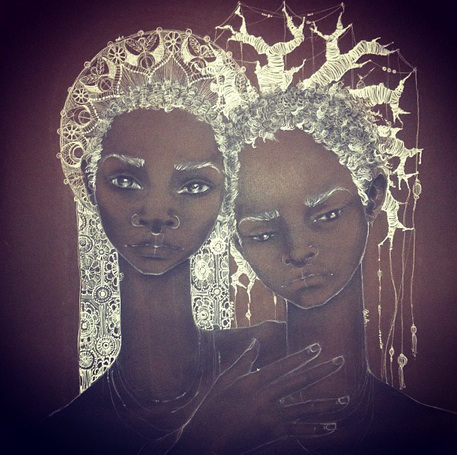
Grenadian attorney and activist Richie Maitland writes (for Groundation Grenada) about the need to prevent violence against of LGBT people and to promote tolerance and inclusion:
Exactly one week ago, on July 22nd 2013, Dwayne Jones, a Montego Bay teenager was shot and chopped to death at a party. The incident happened after the killers were told the teen was a male dressed as a woman. Dwayne’s murder was the most recent in a series of homophobic killings in Jamaica where Christian churches have joined together to fight the removal of legal penalties for men who love each other and to march to condemn LGBT people.
On July 19th 2013, at an anti-gay march organized by the Haitian Coalition of Religious and Moral Organizations, protesters are recorded on Youtube expressing the desire to kill homosexuals. Danilo and Metelus, Port-au-Prince beauticians, were attacked by marchers, Haitian police report, because they were perceived as homosexual. Prior to the protests, Haitian NGOs warned about violence and asked “What mistakes have we not committed in the name of religion, what infamous wars have we not provoked in the name of [the] religious?”
In March 2012 in Belize, Caleb Orozco, an activist who sued to end the criminalization of same-sex intimacy, was injured by attackers. This month evangelical Christians protested his lawsuit, carrying makeshift coffins and effigies of people being hung.
In March 2011, a picture of a gay Trinidad and Tobago teen who had been slapped, planassed, beaten and rolled down a hill by relatives because of his gender expression appeared in the paper. In May 2013, the Gender Minister Marlene Coudray said protections for LGBT young people against such abuse would be removed from the national gender policy to appease conservative religious groups.
The Haitian government, in a thoughtful reply to the Coalition of Religious and Moral Organizations march violence, said: “The country is in effect at a stage where it needs the energies of all its citizens to undertake great and true battles: the battle against extreme poverty, against illiteracy, against hunger and malnutrition, against ignorance and intolerance. In such a context, tolerance, being a necessary virtue for the establishment of a just and democratic society, becomes a patriotic duty to the extent that a society that is not just cannot progress, and there can be no justice without tolerance.”
We have heard words and promises from Prime Ministers Kamla Persad-Bissessar, Freundel Stuart, Portia Simpson-Miller, Denzil Douglas and now Michel Martelly. But they are not enough. There must be more tangible political and religious leadership in preventing violence against and promoting inclusion of LGBT people. Leadership can change ideas about nationality, citizenship and sexual diversity. Jamaican pastor and theologian Dr. Clinton Chisholm, writing in response to fundamentalist mobilization, said: “It is okay to desire and even hope and pray that people in general would recognise and agree with the societal value of the biblical standards of sexual behaviour, but we ought not to demand that everybody comply, and we most certainly should respect the personhood of those who exercise their God-given freedom to practise [homosexuality]”
The whole Caribbean is mired in the same ‘great and true battles’ noted in the Haitian release. Equality and inclusion make winning these battles easier. Political and religious leaders can help include all in winning those struggles; hopefully without more people having to be killed.
Richie Maitland, co-founder of Groundation Grenada, is a Grenadian attorney and activist. He is currently working as an attorney with the Caribbean Forum for Liberation & Acceptance of Genders & Sexualities (CARIFLAGS) and a Deputy Director at Coalition Advocating for Inclusion of Sexual Orientation (CAISO).
For original post, see http://groundationgrenada.com/2013/07/29/in-the-caribbeans-true-battles-lgbt-citizens-are-comrades-not-the-enemy/

One thought on “In the Caribbean’s true battles, LGBT citizens are comrades, not the enemy”